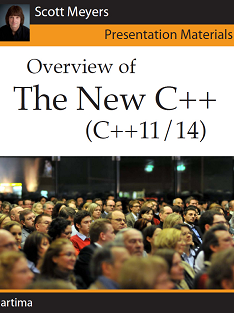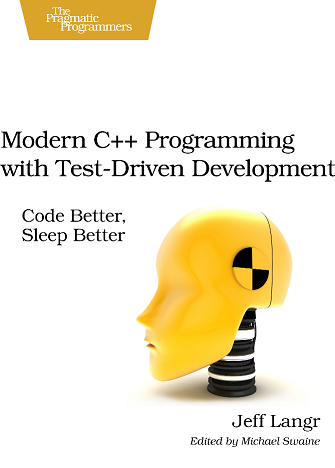C++11/14 Training Materials -- Scott Meyers

C++11 Training Materials Updated -- Now With C++14 Info!
For the seventh time since originally releasing them over three years ago, I've updated my annotated training materials for "The New C++". Until this update, "the new C++" referred to C++11, but with this revision, I'm including treatment of several features from draft C++14 that I believe will make it into the new new standard. As far as I know, this makes my training materials the first "book-like" publication that covers features in C++14.

 The Visual C++ Team Blog has been publishing an article series about optimizations that C++ compilers perform for you under the covers to make your code more efficient. This short nugget answers a question people sometimes ask: "What's constant folding, and why do I care?"
The Visual C++ Team Blog has been publishing an article series about optimizations that C++ compilers perform for you under the covers to make your code more efficient. This short nugget answers a question people sometimes ask: "What's constant folding, and why do I care?"
 Roger Orr has written about the history and use of auto in ACCU's Overload 115:
Roger Orr has written about the history and use of auto in ACCU's Overload 115: Next in Andy Koenig's current series on move operations:
Next in Andy Koenig's current series on move operations: